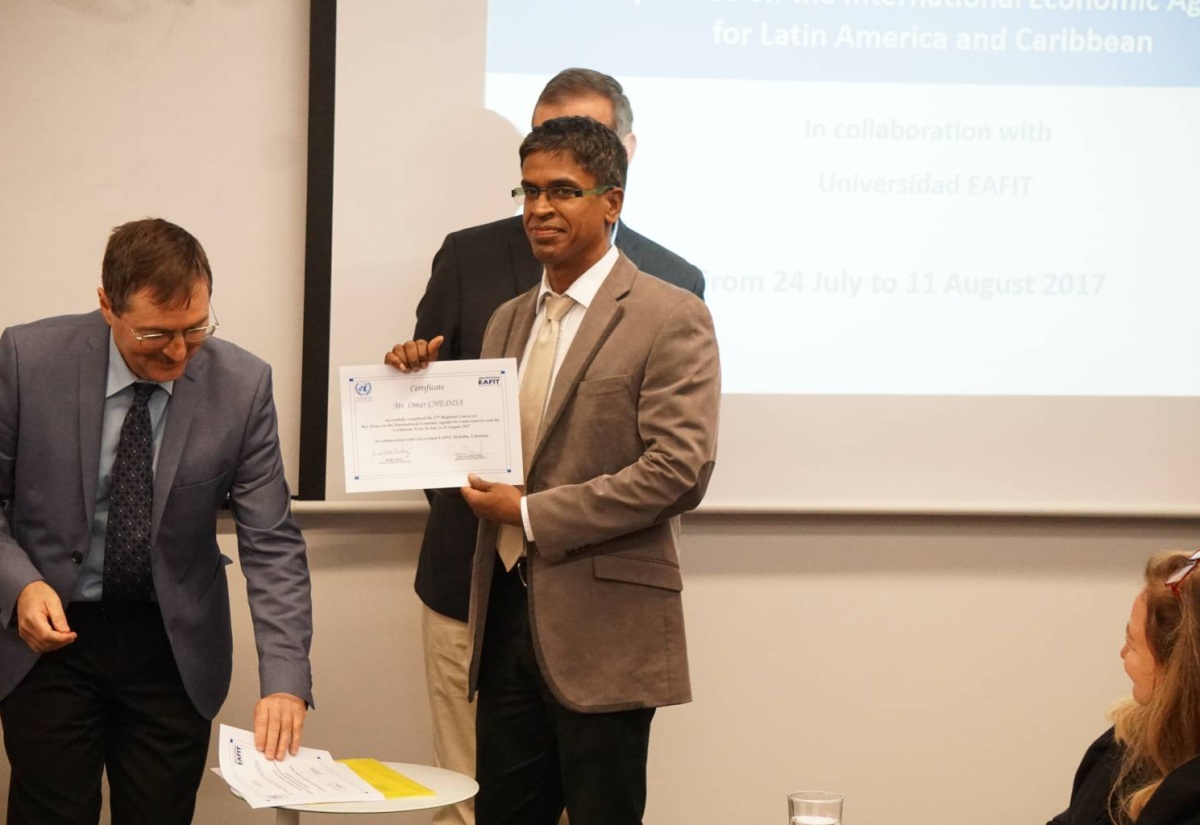Recommendations from UNCTAD Course Should Benefit Country
By: , September 5, 2017The Key Point:
The Facts
- The course, which ran from July 24 to August 11 in Medellin, Colombia, was attended by Director of the Investment Branch of the Ministry of Economic Growth and Job Creation, Omar Chedda.
- The objectives of the regional course included enhancing understanding of the relationships among trade, investment, finance and development in the context of international negotiations, and their links to country development strategies.
The Full Story
The Jamaican Government is set to benefit from a series of recommendations coming out of the United Nations Conference on Trade and Development (UNCTAD) 37th regional course on key issues on the international economic agenda for Latin America and the Caribbean held last month.
The course, which ran from July 24 to August 11 in Medellin, Colombia, was attended by Director of the Investment Branch of the Ministry of Economic Growth and Job Creation, Omar Chedda.
In a report on the course, Mr. Chedda noted that one of the most useful insights gained from the experience was that in order to achieve sustainable development, low-income groups must be able to access the gains from trade and investment.
“This can be achieved by building capacities to strategically integrate into local and global supply and value chains in ways that allow all members to derive benefits and grow. Transportation and logistics policies can play an integral role in this regard by linking producers with markets and suppliers in cost-effective ways,” the report said.
The objectives of the regional course included enhancing understanding of the relationships among trade, investment, finance and development in the context of international negotiations, and their links to country development strategies.
It also sought to build the knowledge and skills necessary for the design and implementation of trade, investment, logistics, science, technology, innovation and development policies, as well as for international negotiations to correspond with the needs and interests of the country.
Mr. Chedda, in his report, noted that while Jamaica had already started to implement several of the strategies recommended, other valuable recommendations included that development policies should facilitate effective resource utilisation to build competitive advantages, entrepreneurial capabilities and production linkages, while effecting structural transformation, such as diversification of the economy, planned urbanisation; and take account of the composition of domestic demand, demographic transition, and inequality.
It is also recommended that productive development policies move away from reliance on commodity exports, because of the uncertainty of commodity cycles, which cause fluctuations in the growth rate and do not promote development. Jamaica has the third-lowest level of diversification of exports in the Latin American and Caribbean region.
The report further noted that cooperation, collaboration, partnerships and communication among stakeholders will be required to implement the economic and structural policies that are required to transform the region. This will require new models of public, private, and community partnerships (PPCP).
The course material will feed into the development of the National Investment, Industrial and Science, Technology, Innovation policies which are currently being crafted.
Mr. Chedda, meanwhile, in his speech at the closing ceremony of the course, hailed the experience as critical in deepening the participants’ understanding of the need to combine appropriate macroeconomic policies with structural reform, which can ignite the latent potential of the Latin American and Caribbean people to achieve economic growth, high-quality jobs and sustainable development.
“Our region faces common challenges, and UNCTAD, through this regional course and country-specific projects, has been helping us to develop innovative strategies to face these challenges and chart a more inclusive path for the future,” he said.
UNCTAD has been active in assisting Jamaica with productive development and trade policies, and most recently with the implementation of the ASYCUDA system for the Jamaica Customs Agency, and providing investment policy advice.


